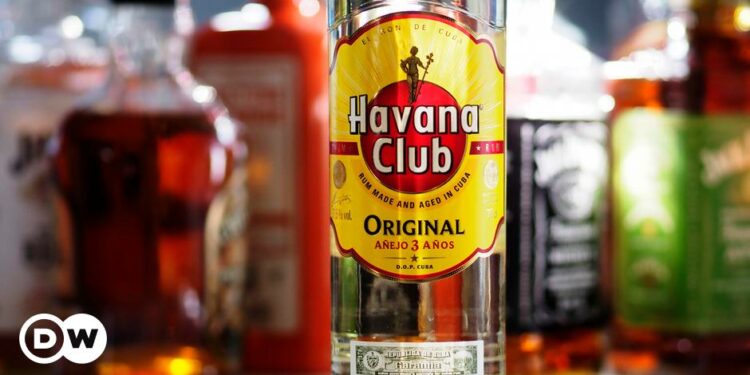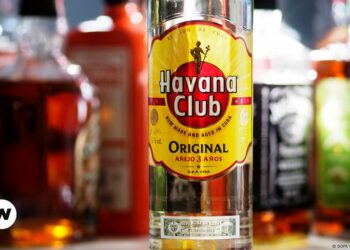New legislation, signed into law by outgoing US President Joe Biden in early December, prohibits US courts from recognizing trademarks that were “illegally confiscated” by the Cuban government since 1959 without the original owners’ consent.
The year 1959 was when Fidel Castro’s revolutionary forces overthrew Cuban dictator Fulgencio Batista and established a socialist state. During the revolution, US companies and citizens were expropriated, prompting the United States to respond with a lasting embargo against Cuba.
Now, the No Stolen Trademarks Honored in America Act of 2023 introduces a new twist to the long-standing legal battle between spirits manufacturer Bacardi and the Cuban government over the Havana Club trademark.
Previously, US courts had upheld Cuban ownership of the Havana Club brand. However, under the new legislation, Cuba’s state-owned enterprise Cubaexport and its French partner, beverage giant Pernod Ricard, would no longer be permitted to assert trademark rights to Havana Club in the US.
Cuban trademarks and international law
Havana Club, the leading Cuban export in alcoholic beverages, generates millions of dollars annually for the island. The signing of the law is a significant blow to Cuba’s rum industry, and reactions from Havana were swift and pointed.
Cuban Foreign Minister Bruno Rodriguez Parrilla called the legislation “an aggressive measure against Cuba” in a post on X (formerly Twitter), accusing it of “opening the door to the theft of Cuban trademarks legally registered in the country, in violation of international law.”
Johana Tablada de la Torre, deputy director for US affairs at the Cuban Ministry of Foreign Affairs, noted in her own X post that nearly 6,500 US trademarks are registered in Cuba, with over 1,000 more in the application process.
She emphasized that all these US trademarks are “protected by Cuba’s Industrial Property Office,” contrasting this with the US government’s stance under the No Stolen Trademarks Act, which she said could just as well be called the “Bacardi Act.”
The ‘Bacardi Act’
The bill, introduced in Congress in March 2023 by a bipartisan group of lawmakers, aims to resolve the Havana Club controversy and “prevent anyone from using US authorities to profit from intellectual property stolen from rightful owners,” according to a report by the House Committee on the Judiciary. It explicitly supports Bacardi’s claims.
Bacardi, founded in Cuba in 1862 and now based in Bermuda, asserts it acquired the Havana Club trademark and recipe from the descendants of the original founders. The company argues that Cubaexport and Pernod Ricard have no legitimate claim to the brand.
After President Biden signed the law, Bacardi expressed satisfaction in an emailed statement to DW, saying it is “pleased” about the legislation as it would “prevent the Cuban government or third parties from profiting in the United States from trademarks linked to assets confiscated by the Cuban government.”
Bacardi has been forced to sell its Havana Club brand as rum made in Puerto Rico for yearsImage: ANGELA WEISS/AFP via Getty Images
California Congressman Darrell Issa, a Republican who co-authored the bill, said in a press release that the law addresses a “historic injustice” and declared that “the bond between the American people and their intellectual property is sacred.”
In contrast, Pernod Ricard voiced disappointment in comments to the European beverage industry magazine, The Drinks Business. The company said the law undermines its “longstanding rights to the Havana Club brand in the United States — a trademark that Pernod Ricard and its joint venture partner Cubaexport have legitimately owned since 1976.”
A long legal battle over a name
The battle over Havana Club between Bacardi and Cubaexport has spanned three decades. In the 1950s, Havana Club was Cuba’s second-largest rum brand after Bacardi.
Following the 1959 revolution, Cuba nationalized rum distilleries, and the Havana Club brand owners, the Arechabala family, fled to Spain. The Bacardi family also left the island but continued producing rum at facilities in Puerto Rico and Mexico.
In 1973, the Arechabala family failed to renew the US trademark for Havana Club, allowing the Cuban government to register the brand in 1976. In 1993, Cubaexport partnered with Pernod Ricard to market Havana Club internationally — except in the US, where an embargo prohibited sales.
Don Jose Arechabala who was born in 1878, created his now famous Havana Club rum in 1934Image: Alan Diaz/AP/picture alliance
One year later, the Arechabala family sold the Havana Club trademark and recipe to Bacardi, which began producing its own version in Puerto Rico. Bacardi argues that the Arechabala family had never relinquished their rights, making the sale legitimate.
Expired licensing rights and Puerto Rico
In 1999, significant lobbying efforts by Bacardi secured the passage of a US law dubbed the “Bacardi Bill” that made it illegal for Cuban-linked companies to renew expired US trademarks or register trademarks confiscated by the Cuban government without compensation.
Pernod Ricard and Cubaexport held US rights to the Havana Club trademark until 2006, when these rights expired. The Bacardi Bill prevented renewal, prompting Pernod Ricard to sue Bacardi, claiming that selling rum under the Havana Club name in the US was misleading.
A Philadelphia court eventually ruled in favor of Bacardi, allowing the company to market Puerto Rican rum under the Havana Club name. When the US Supreme Court declined to hear the case in 2012, the long-running dispute appeared resolved in Bacardi’s favor.
A short-lived thaw in US-Cuba relations
However, in January 2016, during President Barack Obama’s thaw in US-Cuba relations, the US Patent and Trademark Office unexpectedly restored Havana Club’s US trademark to the Cuban government.
Trademark rights are granted for 10-year periods. With the next renewal due in 2026, Johana Tablada de la Torre suspects the new US law “aims to block Cubaexport’s renewal efforts and strip it of its rights.”
Since the law prevents Cubaexport’s renewal, Bacardi may seek to register the Havana Club trademark in the US. Currently, Bacardi sells its rum in the US under the label “The Real Havana Club,” marketed as Puerto Rican rum.
This article was originally written in German.
Source link : http://www.bing.com/news/apiclick.aspx?ref=FexRss&aid=&tid=67642f74133a455a8e3100eb5e7f9f39&url=https%3A%2F%2Fwww.dw.com%2Fen%2Fus-law-ends-havana-club-trademark-battle-between-cuba-and-bacardi%2Fa-71097201&c=7296672522697090965&mkt=en-us
Author :
Publish date : 2024-12-19 00:16:00
Copyright for syndicated content belongs to the linked Source.









